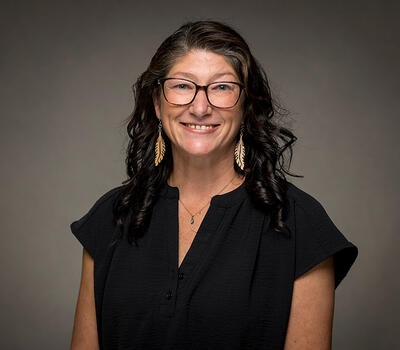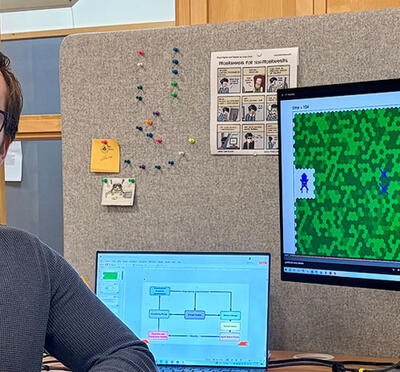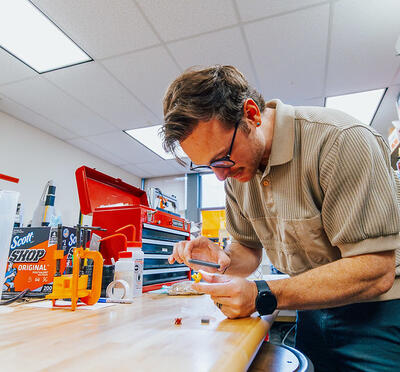Armed with tiny, programmable Cozmo robots, a team of Oregon State University undergraduates have embarked on a program that aims to inspire local K-12 students to pursue technology fields. Along the way, computer science undergraduate Sharlena Luyen became inspired to change her career path. She delayed graduation to earn a minor in education in addition to her degree in computer science.
“I would love to work with kids, and anybody interested in learning about computer science, because I am so passionate about it, and I like to share that passion,” Luyen said.
This program is the brainchild of Jennifer Parham-Mocello, assistant professor of computer science. Rather than follow prescribed coursework, the undergraduates develop robot-related lessons for different skill levels and then test the effectiveness of their curriculum in K-12 classrooms.
It combines research, outreach, and hands-on learning for both the K-12 students and the undergraduates. The undergraduates receive wages or course credit as compensation, but Parham-Mocello says their motivation for participating is more than that.
“The incentive comes from empowering the undergraduates to be in charge,” Parham-Mocello said. “They are invested because they created the curriculum, and so they really want to see how well that plays out in the classroom.”
Luyen helped to assemble and lead the team to work on the project. Over the 2018-19 school year, the undergraduates brought the robots to local schools and after-school programs. The team used the robots in various ways depending on the skill level of the students. For the youngest students, the main objective was to get them excited about technology using a fun, interactive robot. The older elementary school students used a simple visual block-based language called Scratch to control the robot. At the middle and high school level, the students used Python for more advanced coding tasks, such as programming the robot to play a simple version of Candyland.
“I like that we were able to impact kids at an early age and show them that they have the ability to contribute to technology,” Luyen said.
Computer science undergraduate Kaitlin Hill joined the team because she wants to teach high school in the future. She lists off many skills she learned while working on the project, including methods for teaching children, troubleshooting technology problems, planning and organizing meetings, and working with school staff.
“This definitely been a very meaningful experience for me,” Hill said. “It’s also helping the community, which I think is beneficial and impactful.”
For next year, the team is using their experiences to improve the curriculum and package it so they can hand it over to the teachers. The goal is to improve K-12 education for computing concepts so that incoming first-year students will be better prepared for college computer science courses.
This is just one effort by Parham-Mocello to improve computer science education in public schools. She also received funding from Google to teach computational thinking — the foundation of computer programming — to future secondary math teachers studying at Oregon State. The research project is a collaboration with Elise Lockwood, associate professor of mathematics in the College of Science, and Rebekah Elliott, associate professor of mathematics education in the College of Education.
“I see this as just the beginning of a productive partnership between researchers at a university and practitioners in K-12 education,” Parham-Mocello said.




